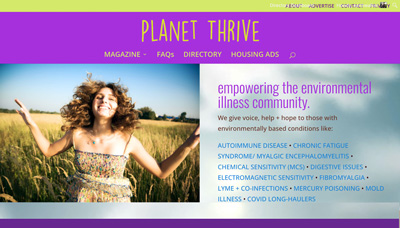
Married to a canary. In this toxic world of pesticides, polymers and compounds born only for human financial gain. I am grateful for my chemical-free loving home. My “green” life is yellow this month. I am in love with a canary. © John Boyce
MCS stands for Multiple Chemical Sensitivity, also known as environmental sensitivity, environmental illness, toxicant induced loss of tolerance (TILT), chemical intolerance, and other terms. It is a condition characterized by an acute intolerance to low levels of a range of substances, including chemicals, electromagnetic fields (EMFs), and/or molds. Exposure to extremely low levels of the offending substance cause a wide variety of symptoms, ranging in severity from mild to completely debilitating, and can even be life-threatening. Chemical sensitivity can affect multiple organ systems and is often progressive if lifestyle changes are not implemented. There have been several reported deaths from this illness.
Although the exact nature of the illness is not yet known, there are many theories, including that it is a toxic brain injury sustained from a combination of exposures to harmful chemicals, toxic mold, and other neurotoxins (such as those produced by the spirochetes that cause lyme disease). Sufferers often liken themselves to “canaries in the coalmine” – warning our culture of the toxicity of many commonly used products, much like real canaries used to warn coal miners of the dangers of toxic gases found in the mines. A major difference is that the miners of the past listened to the canaries in the mines. Convincing our society to take action to regulate and even ban toxic chemicals is proving to be more of a challenge. To learn more, please read our chemical sensitivity page.
If you know someone who gets sick from perfume, can’t stand to be around cigarette smoke, or gets very ill after visiting shoe repair stores or dry cleaners, then you just might know someone who has chemical sensitivity. Those who get strong headaches from using cell phones, whose vision goes blurry whenever they are under fluorescent bulbs, or who get a burning skin sensation while using their computer also may fall under the broader term of environmental sensitivity/intolerance.
There is a lot that can be done to prevent this illness, and to prevent progression of the illness once you have it. Please take the time to self educate this month. WIth the constant pouring into our environment of toxic chemicals and electromagnetic “smog,” you will hear about more and more cases of environmental intolerance and one day it might just be you, or someone you love. Take measures now to avoid this distressing and extremely challenging condition. We are all at risk.










thanks for posting this JULIE :) I am so glad I and John can share and educate others…thanks for posting this…
chemicals to avoid:
for me it is perfumes, petro, diseal, VOC’s, pesticides and herbicides..anhydrous ammonia that farmers use, PVC’s, sysnthetic laundry products, personal products, chem lawn, fertilizers, lawn applications, asphalt, the list goes on…
Loved this on FB; so glad Julie picked it up on Planet Thrive…who would have thought 16 years ago this May I would be grateful to have MCS…and meet all these creative, smart, tenacious people. Thanks all for sharing yourselves in whatever way you are able. It makes such a difference. HUGS and HOPE!
Thanks for sharing this important info on MCS, which can derive from toxic exposures, such as to mold and indoor dampness. Just think, in thousands of damp and leaky schools, our children and school staff are being sickened, with little recourse. Most parents and pediatricians have no idea that school environments are so unhealthy. Learn more so you can avoid exposures that cause health problems. For more information on mold, health, and MCS, visit http://www.schoolmoldhelp.org!